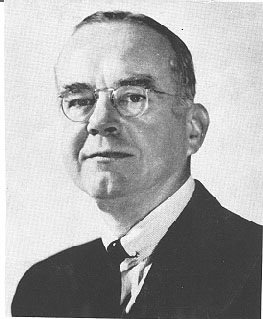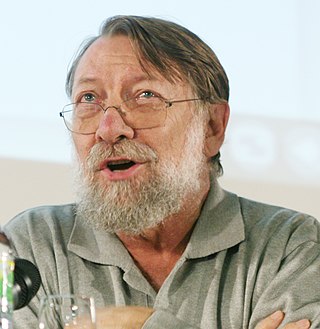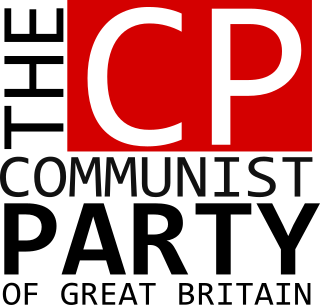 | |
| Author | Raphael Samuel |
|---|---|
| Language | English |
| Publisher | Verso Books |
Publication date | 2006 |
| Pages | 244 |
| ISBN | 9781844671038 |
| OCLC | 71239437 |
The Lost World of British Communism is a book by Raphael Samuel first published, posthumously, in 2006 by Verso Books.
 | |
| Author | Raphael Samuel |
|---|---|
| Language | English |
| Publisher | Verso Books |
Publication date | 2006 |
| Pages | 244 |
| ISBN | 9781844671038 |
| OCLC | 71239437 |
The Lost World of British Communism is a book by Raphael Samuel first published, posthumously, in 2006 by Verso Books.
The book is composed of a series of essays that were collected together to mark the ten year anniversary of Samuel's death in 1996. They describe the development of the Communist Party of Great Britain in the 1940s and the experience of being a member of it from the vantage point of the 1980s. [1] All of the three essays in the work were published by the New Left Review between 1984 and 1987. [2] [3] [4]
The book engages with a number of different aspects of Communism in Britain, for example the way in which the party was organised on a top-down basis that was founded upon direction by the Comintern and that had elements of the Leninist idea of a 'vanguard party' centred on a small group of professional revolutionaries.
The book also examines the state of left-wing politics in the UK in the challenging environment of the Thatcherite 1980s and, in the case of the British Communist party of the time, the way in which it was divided between an 'old guard' faction and the younger forces aligned around Marxism Today at the time. [5] Samuel himself had left the organisation thirty years earlier. One of his overall assessments of the movement was that it embodied a "doomed, flawed but noble faith". [6]

A communist state, also known as a Marxist–Leninist state, is a one-party state that is administered and governed by a communist party guided by Marxism–Leninism. Marxism–Leninism was the state ideology of the Soviet Union, the Comintern after Bolshevisation and the communist states within the Comecon, the Eastern Bloc, and the Warsaw Pact. Marxism–Leninism currently still remains the ideology of a few parties around the world. After its peak when many communist states were established, the Revolutions of 1989 brought down most of the communist states, however, it is still the official ideology of the ruling parties of China, Cuba, Laos, Vietnam, and to a lesser extent, North Korea. During most of the 20th century, before the Revolutions of 1989, around one-third of the world's population lived under communist states.

James Burnham was an American philosopher and political theorist. He chaired the New York University Department of Philosophy; his first book was An Introduction to Philosophical Analysis (1931). Burnham became a prominent Trotskyist activist in the 1930s. He later rejected Marxism and became an even more influential theorist of the political right as a leader of the American conservative movement. His book The Managerial Revolution, published in 1941, speculated on the future of capitalism. Burnham was an editor and a regular contributor to William F. Buckley's conservative magazine National Review on a variety of topics. He rejected containment of the Soviet Union and called for the rollback of communism worldwide.

Council communism is a current of communist thought that emerged in the 1920s. Inspired by the November Revolution, council communism was opposed to state socialism and advocated workers' councils and council democracy. It is regarded as being strongest in Germany and the Netherlands during the 1920s.

Communist Party USA, officially the Communist Party of the United States of America (CPUSA), also known as the American Communist Party, is a communist party in the United States which was established in 1919 after a split in the Socialist Party of America following the Russian Revolution.

Milovan Djilas was a Yugoslav communist politician, theorist and author. He was a key figure in the Partisan movement during World War II, as well as in the post-war government. A self-identified democratic socialist, Djilas became one of the best-known and most prominent dissidents in Yugoslavia and all of Eastern Europe. During an era of several decades, he critiqued communism from the viewpoint of trying to improve it from within; after the revolutions of 1989 and the violent breakup of Yugoslavia, he critiqued it from an anti-communist viewpoint of someone whose youthful dreams had been disillusioned.

Stéphane Courtois is a French historian and university professor, a director of research at the French National Centre for Scientific Research (CNRS), professor at the Catholic Institute of Higher Studies (ICES) in La Roche-sur-Yon, and director of a collection specialized in the history of communist movements and communist states.
Raphael Elkan Samuel was a British Marxist historian, described by Stuart Hall as "one of the most outstanding, original intellectuals of his generation". He was professor of history at the University of East London at the time of his death and also taught at Ruskin College from 1962 until his death.
Vladimir Tismăneanu is a Romanian American political scientist, political analyst, sociologist, and professor at the University of Maryland, College Park. A specialist in political systems and comparative politics, he is director of the University of Maryland's Center for the Study of Post-Communist Societies, having served as chairman of the editorial committee (2004–2008) and editor (1998–2004) of the East European Politics and Societies academic review. Over the years, Tismăneanu has been a contributor to several periodicals, including Studia Politica, Journal of Democracy, Sfera Politicii, Revista 22, Evenimentul Zilei, Idei în Dialog and Cotidianul. He has also worked with the international radio stations Radio Free Europe and Deutsche Welle, and authored programs for the Romanian Television Company. As of 2009, he is Academic Council Chairman of the Institute for People's Studies, a think tank of the Romanian Democratic Liberal Party. Between February 2010 and May 2012, he was also President of the Scientific Council of the Institute for the Investigation of Communist Crimes in Romania.
Communism is a left-wing to far-left sociopolitical, philosophical, and economic ideology within the socialist movement, whose goal is the creation of a communist society, a socioeconomic order centered around common ownership of the means of production, distribution, and exchange that allocates products to everyone in the society based on need. A communist society would entail the absence of private property and social classes, and ultimately money and the state. Communists often seek a voluntary state of self-governance but disagree on the means to this end. This reflects a distinction between a more libertarian approach to communization, revolutionary spontaneity, workers' self-management, and a more authoritarian vanguardist or communist party-driven approach through the development of a socialist state, followed by the withering away of the state. As one of the main ideologies on the political spectrum, communism is placed on the left-wing alongside socialism, and communist parties and movements have been described as radical left or far-left.
Marxism is a method of socioeconomic analysis that originates in the works of 19th century German philosophers Karl Marx and Friedrich Engels. Marxism analyzes and critiques the development of class society and especially of capitalism as well as the role of class struggles in systemic, economic, social and political change. It frames capitalism through a paradigm of exploitation and analyzes class relations and social conflict using a materialist interpretation of historical development – materialist in the sense that the politics and ideas of an epoch are determined by the way in which material production is carried on.
Alison Light, is a writer, critic and independent scholar. She is the author of five books to date. In 2020 A Radical Romance, was awarded the Pen Ackerley prize, the only prize for memoir in the UK. Common People: The History of an English Family (2014) was shortlisted for the Samuel Johnson prize. She has held a number of academic posts and is currently an Honorary Fellow in History and English at Pembroke College, Oxford. She is also an Honorary Professor in the Department of English, University College, London and an Honorary Professorial Fellow in the Department of English, Edinburgh University. She is a founding member of the Raphael Samuel Archive and History Centre in London.

Eric John Ernest Hobsbawm was a British historian of the rise of industrial capitalism, socialism and nationalism. His best-known works include his tetralogy about what he called the "long 19th century" and the "short 20th century", and an edited volume that introduced the influential idea of "invented traditions". A life-long Marxist, his socio-political convictions influenced the character of his work.

Edward Palmer Thompson was an English historian, writer, socialist and peace campaigner. He is best known today for his historical work on the radical movements in the late 18th and early 19th centuries, in particular The Making of the English Working Class (1963).

Left communism, or the communist left, is a position held by the left wing of communism, which criticises the political ideas and practices espoused by Marxist–Leninists and social democrats. Left communists assert positions which they regard as more authentically Marxist than the views of Marxism–Leninism espoused by the Communist International after its Bolshevization by Joseph Stalin and during its second congress.

The Communist Party of Great Britain (CPGB) was the largest communist organisation in Britain and was founded in 1920 through a merger of several smaller Marxist groups. Many miners joined the CPGB in the 1926 general strike. In 1930, the CPGB founded the Daily Worker. In 1936, members of the party were present at the Battle of Cable Street, helping organise resistance against the British Union of Fascists. In the Spanish Civil War the CPGB worked with the USSR to create the British Battalion of the International Brigades, which party activist Bill Alexander commanded.

Eurocommunism was a trend in the 1970s and 1980s within various Western European communist parties which said they had developed a theory and practice of social transformation more relevant for Western Europe. During the Cold War, they sought to reject the influence of the Soviet Union and the Communist Party of the Soviet Union. The trend was especially prominent in Italy, Spain, and France.

Philip Bounds was a Marxist historian, journalist and critic. He held a PhD in Politics from the University of Wales and wrote a number of books, including Orwell and Marxism and British Communism and the Politics of Literature, 1928–1939.
The anti-Stalinist left is a term that refers to various kinds of Marxist political movements that oppose Joseph Stalin, Stalinism, Neo-Stalinism and the system of governance that Stalin implemented as leader of the Soviet Union between 1924 and 1953. This term also refers to the high ranking political figures and governmental programs that opposed Joseph Stalin and his form of communism, such as Leon Trotsky and other traditional Marxists within the Left Opposition.
Matthew Worley is a British academic and author. He is Professor of Modern History at the University of Reading.

Universities and Left Review was a socialist magazine that published seven issues between 1957 and 1959.